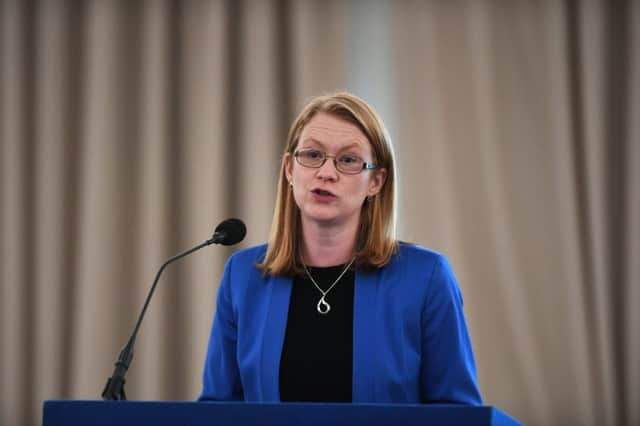Scottish Government spending less on austerity mitigation than first esitmated


Holyrood ministers estimated in January the bill for mitigating what they described as “the worst impact of UK Government welfare reforms” would reach £125m for the 2018-19 financial year.
Shirley-Anne Somerville, the social security secretary, revealed yesterday that instead £104m was spent offering support for those most in need.
Advertisement
Hide AdAdvertisement
Hide AdThe money was used to mitigate the bedroom tax in full through Discretionary Housing Payments, crisis grants as part of the Scottish Welfare Fund and advice to support households impacted by UK Government welfare reform.
The Scottish Government also offers people flexibility in how they receive their Universal Credit payments, such as receiving payments twice monthly rather than monthly, or paying landlords directly. Ms Somerville claimed there was “no doubt that without the cuts inflicted on families by the UK Government our funding could go so much further”. The UK Government responded that absolute poverty was lower than it was in 2010 and added there were now more people in employment than ever before.
Westminster welfare cuts are currently predicted to reduce social security spending in Scotland by up to £3.7 billion in 2020-21.
Ms Somerville said: “We are spending more than £100 million each year to mitigate the worst effects of UK government austerity – part of the £1.4 billion we spent last year to support low income households.
“This essential funding could be better invested to help pull more people in Scotland out of poverty
“A policy like the Scottish Child Payment, which we announced this year to tackle child poverty head-on, is an example of what we can do. Once fully rolled out in 2022, the benefit could help up to 410,000 eligible under 16s and lift an estimated 30,000 children out of poverty – and for families with a child under six, they will start benefitting by Christmas next year.”
Scottish Labour finance spokeswoman Rhoda Grant said: “The Scottish Government keeps calling for additional powers and then either refuse to use them or hand them back because they cannot administer properly.
“This is the case with Social Security. Had the SNP government taken on these powers when they were available, there would be no need to mitigate the current regime.”
Advertisement
Hide AdAdvertisement
Hide AdA UK Government spokeswoman said: “Tackling poverty will always be a priority for this government. Absolute poverty is lower than it was in 2010, there are more people in work than ever before, and wages continue to outpace inflation.
“But we know some families need more support, which is why we continue to spend £95 billion a year on working-age benefits.
“Meanwhile, Scotland has significant welfare powers , including flexibilities within Universal Credit and the power to top-up existing benefits, pay discretionary payments and create entirely new benefits altogether.”